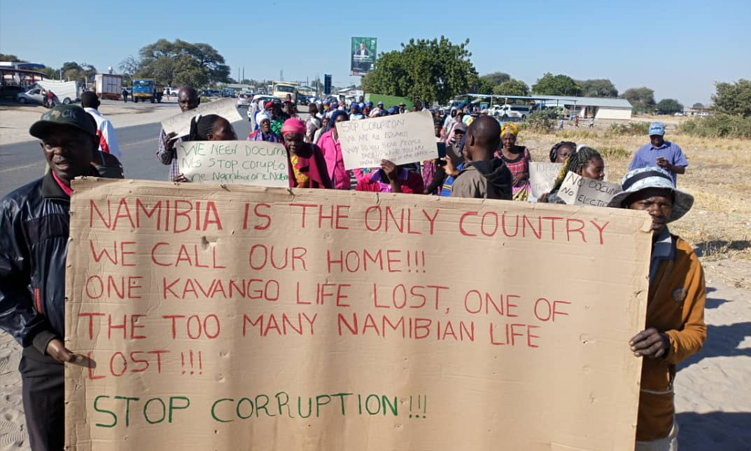Stateless and undocumented people living in the Kavango East and Kavango West regions have called on the government to speed up registering them, accusing the Rundu regional office of delaying the process.
The two Kavango regions have the highest number of stateless and undocumented people in the country.
An undocumented or stateless person is someone without national documents, who is not considered a national of any country.
With no legal national document, people are unable to access vital basic services such as enrolling in school, getting employment legally or accessing public services and healthcare. They are also unable to obtain travel documents, get married or access social grants and other schemes that offer government assistance. This leaves them vulnerable and open to exploitation.
The Kavango East region has a total of 30 036 undocumented residents, with 21 630 in the Kavango West region.
This is according to a report from the Ministry of Home Affairs, Immigration, Safety and Security.
The Kavango East region has the highest number of undocumented people, followed by the Omusati region with 25 421 and Kavango West, while the //Kharas region has the lowest number of undocumented residents, with 281.
Currently, there are 141 048 stateless and undocumented people in the country.
A group calling themselves the Undocumented Residents of Kavango East and West Concerned Group took part in a demonstration on Friday.
They handed over a petition for home affairs minister Albert Kawana’s attention.
The petition was received by Damian Maghambayi, the chairperson of the Kavango East Regional Council management committee.
Maghambayi told the demonstrators the government is aware of the issue, and is in the process of registering the affected people.
The group’s spokesperson, Patrick Kashera, said people of the Kavango regions travel long distances, hoping to obtain national documents, but are often turned away by “indisciplined” and “frustrated” officials at the Rundu home affairs office.
“It is so hard for the ministry to issue documents while people are still living, but they process the death certificates of those who did not have documents when they were alive fast,” he said.
According to the group, they have observed unfair appointments at the Rundu office, saying those heading the civil registration and immigration departments are not from either Kavango region.
Kashera, on behalf of the group, demanded the equitable balancing of management structures, involving people from the two Kavango regions, and not only individuals from other regions at the helm of the Rundu office.
He said prioritising the dead over the living should stop.
“The ministry should increase staff and facilities in both regions to minimise travelling and to save on costs,” he said.
Kawana during his budget motivation speech in March said Namibia has joined other United Nations member states in the #IBelong campaign, aimed at ending statelessness by 2024.
His ministry has commenced with the identification and registration of stateless and undocumented people in the country, he said.
“To date, 141 048 individuals have been identified and registered as stateless and undocumented persons. This number is currently being validated against the national population registration system.
“We are still waiting for feedback from the Hardap region and a few constituencies from other regions. A new law will be enacted to regulate the status of stateless people in Namibia,” the minister said.
Stay informed with The Namibian – your source for credible journalism. Get in-depth reporting and opinions for
only N$85 a month. Invest in journalism, invest in democracy –
Subscribe Now!






